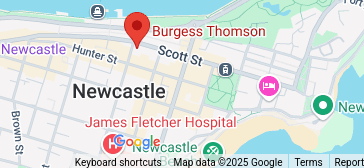Deceased Estates & Probate
Wills & Estate Planning
Deceased Estates and Probate
At Burgess Thomson we understand that dealing with deceased estates is one of the more difficult challenges in life.
From the mountains of paperwork to the legal jargon and simmering family disputes, they’re the last things you want to be dealing with when you’re grieving the loss of someone important in your life.
Probate
Probate is recognition of a Will’s validity and permission from the Supreme Court. It also grants the Executors named in the Will of the deceased to carry out their duties in relation to the Estate.
The executor of a deceased estate is responsible for carrying out the wishes of the person who has passed away. This is known as deceased estate administration.
You will likely need a Grant of Probate to deal with the assets of an estate, such as selling property and obtaining bank funds.
Deceased Estates
The distribution of a deceased estate may only occur once the proper legal processes have been followed. This includes an assets and liabilities inventory and informing each of the beneficiaries of their inheritance.
There may also be people contesting a Will, which may lead to complexities and drag out the process a little further.
GET A QUICK QUOTE
Enter your details for an obligation free quote.
LEARN MORE
It’s wise to get expert advice. Arrange a consultation with our specialist Wills & Estate Lawyers in Newcastle.
How Burgess Thomson Can Help
Deceased estates can be a long legal journey to navigate.
So, let us help by:
- Interpreting the Will of the deceased in terms of estate laws
- Advising executors and trustees of their duties and rights
- Informing government bodies including Centrelink and Veterans Affairs
- Applying for probate of the Will in the Supreme Court
- Dealing with intestacy
- Applying for Letters of Administration
- Identifying estate assets and liabilities
- Obtaining valuations of estate property
- Collecting estate financial assets including superannuation, bank funds, shares, outstanding loans, and insurance payouts
- Selling or transferring estate property including estate auctions
- Paying estate debts including mortgages, funeral costs, and testamentary expenses
- Advising in regard to family and testamentary trusts
- Administering trust funds
- Distributing bequests and inheritances to beneficiaries
- Organising information for estate tax returns
- Family mediation and negotiation
- Contesting wills and defending estate litigation in the Supreme Court
We work with executors to ensure an estate is managed according to the terms outlined in a Will. We strive for excellence and high-quality services.
Why Us?
Burgess Thomson are the premiere deceased estate lawyers in Newcastle. Our team offers a collective 60 years of experience dealing with legal affairs.Our team can deal with a range of legal matters, including probate and deceased estate property.Common Questions & Answers
Have you been chosen by a family member or friend to be the Executor of their Will? This means that you have been given responsibility to manage their estate according to the terms they’ve outlined in their Will and to protect their assets under the various laws and rules that govern estate administration in Australia.
An executor’s duties may include responsibilities such as:
- Organising the funeral, notices for the paper, flowers
- Locating the Will
- Obtaining a copy of the Death Certificate
- Making sure any property and assets are safe and secure
- Determining the value of assets
- Applying for Probate
- Paying insurance policies, debts and taxes
- Collecting monies belonging to the deceased from financial institutions and insurance companies
- Collecting debts owed to the deceased
- Lodging tax returns for the deceased and for the estate
- Selling properties and assets
- Reporting to beneficiaries
- Distributing the proceeds of the estate to beneficiaries
- Setting up trusts
Being an Executor can be overwhelming, particularly when you are grieving, but rest assured we can guide you through.
It depends. If you are a beneficiary of the will it is presumed that your benefit will cover your costs. If you’re not a beneficiary then you can apply to the Supreme Court for commission.
Probate is recognition of the Will’s validity and permission from the Supreme Court for the Executors named in the Will of the deceased to carry out their duties in relation to the Estate. You will likely need a grant of Probate to deal with the assets of an estate, such as selling property and obtaining bank funds.
This situation is referred to as intestacy and the law determines how assets will be shared out after debts have been paid. If you are the next of kin you can apply for Letters of Administration, which will give you authority to finalise the estate.
Just because you have been named an Executor doesn’t mean you have to accept the responsibility. If there is another Executor named, they can take on the whole of the job, or if you are the sole executor you can apply to the court to appoint someone else. You cannot change your mind later though – giving up the responsibility is final.




